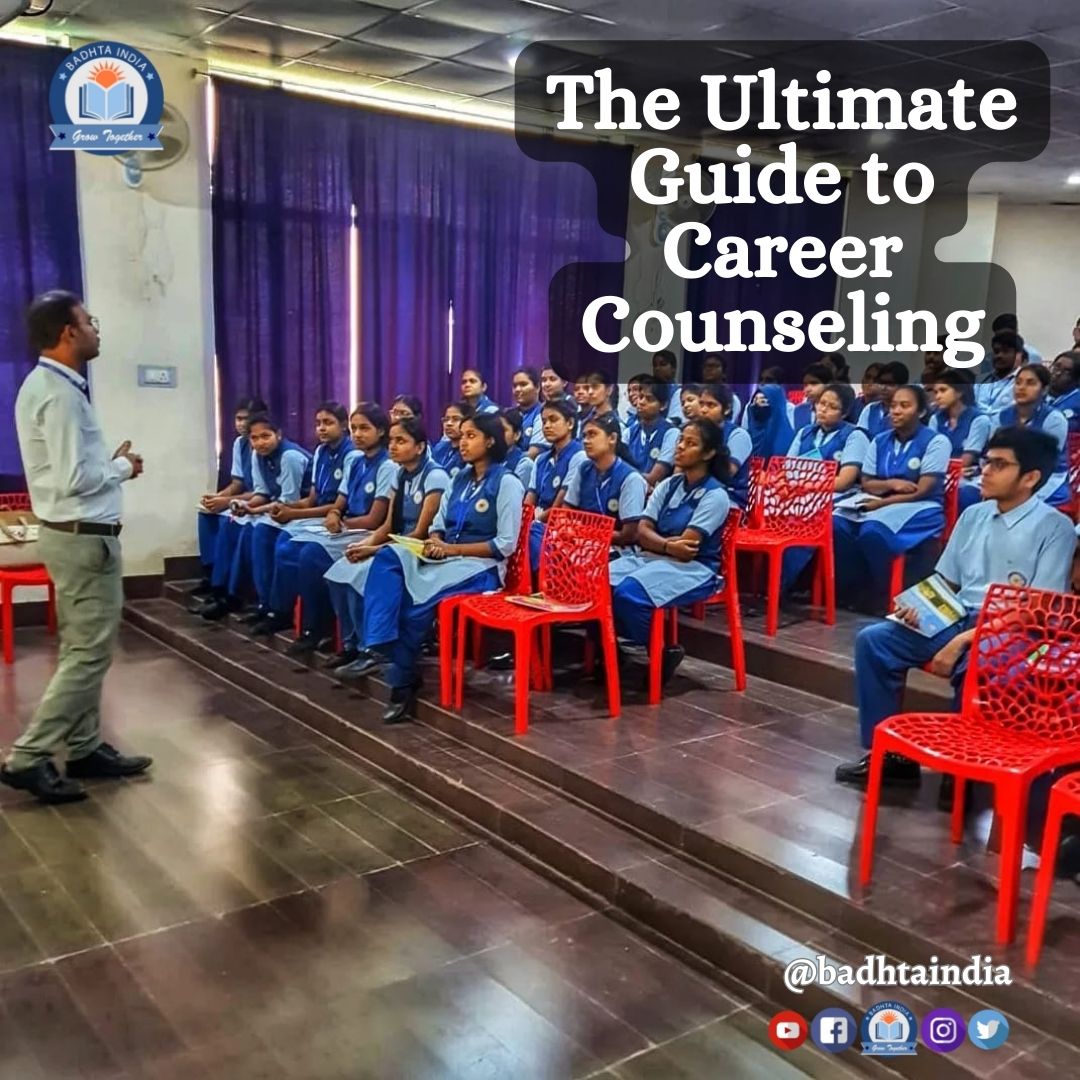Unleashing Your Potential: The Ultimate Guide to Career Counseling
Introduction
Career counseling is a crucial element in the journey toward success. It plays a pivotal role in supporting individuals in understanding themselves, exploring career options, setting goals, and overcoming challenges. By seeking guidance from a professional career counselor, one can effectively unleash their potential and pave the way for a fulfilling and prosperous career.
Understanding Career Counseling
Definition and Purpose of Career Counseling
Career counseling is a collaborative process between a trained counselor and an individual seeking guidance in their professional journey. It aims to assist individuals in making informed decisions about their careers by exploring their skills, interests, and values.
The Role of a Career Counselor
A career counselor acts as a facilitator, providing objective and expert advice. They help individuals understand their strengths and weaknesses, identify career options that align with their aspirations, and establish a strategic plan to achieve their goals.
Assessing Yourself
Identifying Your Skills, Strengths, and Interests
Self-assessment is a fundamental step in career counseling. It involves recognizing and evaluating one’s skills, strengths, and interests. Through various assessment tools and exercises, individuals can gain a comprehensive understanding of their capabilities, which serves as a solid foundation in making career choices.
Exploring Personal Values and Passion
Understanding personal values and passion is crucial in finding a career that aligns with one’s core beliefs and enables them to find fulfillment. A career counselor can assist individuals in exploring their values and passions, helping them make informed decisions about the career paths that resonate with their true selves.
Exploring Career Options
Researching and Discovering Various Career Paths
Exploring career options involves in-depth research and exploration of different industries and professions. By delving into the particulars of various careers, individuals can gain insights into the job market, growth opportunities, and the qualifications required for success in each specific field.
Identifying Potential Industries and Job Opportunities
During this phase, individuals also identify potential industries and job opportunities that match their skills, interests, and values. It involves analyzing the current job market trends, considering factors such as salary potential, job stability, and future prospects.
Choosing the Right Career Path
Assessing Compatibility between Skills, Interests, and Career Options
Choosing the right career path requires aligning one’s skills, interests, and values with the identified career options. A career counselor can assist in assessing compatibility, helping individuals make informed decisions based on a thorough evaluation of various factors.
Evaluating the Market Demand and Growth Potential for Chosen Career Paths
Additionally, it is crucial to evaluate the market demand and growth potential for chosen career paths. Understanding the industry trends, competition, and future prospects can significantly impact long-term career success.
Setting Goals and Formulating Plans
Establishing Short-Term and Long-Term Career Goals
Setting clear and realistic short-term and long-term career goals is essential for providing direction and motivation. Career counselors help individuals establish attainable goals that reflect their aspirations and contribute positively to their overall career progression.
Creating a Strategic Plan to Achieve Career Objectives
To achieve career goals, it is crucial to formulate a strategic plan. This plan may involve acquiring specific skills, pursuing further education, and gaining relevant experience. Career counselors play a vital role in assisting individuals in creating a comprehensive roadmap towards their desired career objectives.
Developing Essential Skills
Identifying and Acquiring Necessary Skills for Career Success
Developing essential skills is vital for career growth and success. A career counselor can help individuals identify the specific skills required in their chosen field and provide guidance on how to acquire or enhance these skills. This may involve enrolling in courses, attending workshops, or seeking on-the-job training opportunities.
Understanding the Importance of Continuous Learning and Skill Development
Career counseling emphasizes the significance of continuous learning and skill development. With rapidly evolving industries and technologies, individuals must stay updated and adaptable. By cultivating a growth mindset and investing in continuous learning, individuals can enhance their employability and open doors to new career opportunities.
Overcoming Barriers and Challenges
Addressing Common Obstacles in Pursuing a Chosen Career Path
Pursuing a chosen career path often comes with its fair share of obstacles. These may include lack of experience, self-doubt, or external challenges. A career counselor can provide guidance and support in overcoming these barriers, empowering individuals to persevere and achieve their career goals.
Strategies for Dealing with Setbacks and Self-Doubt
Setbacks and self-doubt are common in any career journey. A career counselor can provide valuable strategies for managing and overcoming these challenges. They can assist individuals in developing resilience, self-confidence, and a positive mindset, enabling them to overcome setbacks and continue moving forward.
Seeking Guidance and Mentorship
The Value of Seeking Advice from Professionals in Your Desired Field
Seeking advice from professionals working in your desired field can provide valuable insights and guidance. A career counselor can help individuals connect with industry experts, facilitating mentorship opportunities that offer unique perspectives and wisdom.
How Mentorship Can Accelerate Your Career Growth
Mentorship plays a vital role in career growth. By learning from experienced professionals, individuals can gain practical knowledge, expand their network, and receive guidance tailored to their goals and aspirations. Career counselors can help individuals find suitable mentors and establish meaningful relationships that foster personal and professional growth.
Networking for Success
Building a Strong Professional Network
Building a strong professional network is essential for long-term career success. Career counselors can provide advice on networking strategies, such as attending industry events, joining professional organizations, and utilizing online platforms. By establishing connections with like-minded professionals, individuals can open doors to new opportunities and gain valuable industry insights.
Leveraging Networking Opportunities to Advance Your Career
Networking opportunities are not merely about making connections but also about leveraging them to advance one’s career. Career counselors can guide individuals on cultivating meaningful relationships, seeking mentorship, and utilizing networking platforms effectively. Through strategic networking, individuals can enhance their visibility, expand their knowledge, and uncover potential career prospects.
Mastering Job Search Techniques
Writing an Impressive Resume and Cover Letter
An impressive resume and cover letter are essential tools in the job search process. Career counselors can provide valuable guidance on crafting a standout resume and cover letter that effectively highlight an individual’s skills, experiences, and achievements. These documents serve as the first impression to potential employers and can significantly impact job search outcomes.
Navigating Job Interviews and Showcasing Your Potential
Job interviews can be nerve-wracking, yet they present an opportunity to showcase one’s potential. A career counselor can offer strategies for preparation, including mock interview sessions, interview techniques, and guidance on addressing common interview questions. By mastering job interview techniques, individuals can confidently present themselves and increase their chances of success.
Embracing Change and Adaptability
Dealing with Career Transitions and Change
Change is inevitable in any career journey. Whether it involves transitioning to a new role, industry, or even a new career altogether, a career counselor can provide support and guidance during these transitional phases. They can help individuals adjust their mindset, embrace change, and navigate potential challenges along the way.
How Flexibility and Adaptability Contribute to Long-Term Success
Flexibility and adaptability are essential traits for long-term career success. A career counselor can emphasize the importance of embracing these qualities, enabling individuals to thrive in dynamic work environments, navigate evolving job markets, and seize new opportunities.
Achieving Work-Life Balance
Strategies for Maintaining a Healthy Work-Life Balance
Maintaining a healthy work-life balance is crucial for overall wellbeing and satisfaction. Career counselors can provide strategies for setting boundaries, managing time effectively, and prioritizing personal and family life alongside professional obligations. By implementing strategies to achieve work-life balance, individuals can prevent burnout and foster long-term happiness.
Avoiding Burnout and Fostering Personal Well-being
Burnout is a common challenge in today’s fast-paced and competitive work environment. Career counseling addresses the importance of self-care and stress management, encouraging individuals to prioritize their physical and mental well-being. By implementing self-care practices, individuals can maintain their overall health and maintain a sustainable career.
Evaluating Career Progress
Assessing and Measuring Career Growth and Success
Evaluating career progress involves assessing the advancements made towards established career goals. Career counselors help individuals track their achievements, identify areas for improvement, and measure success based on their unique objectives. Regular evaluations allow individuals to pivot, make necessary adjustments, and continue their growth trajectory.
Reflecting on Achievements and Setting New Objectives
Reflecting on achievements is essential in celebrating milestones and setting new objectives. A career counselor assists individuals in recognizing their professional accomplishments and encourages them to set challenging yet attainable goals for the future. This process ensures continual growth and personal development.
When to Revisit Career Counseling
Recognizing Signs That Indicate the Need for Career Counseling
Throughout one’s career journey, there may be instances when revisiting career counseling becomes necessary. Signs such as feeling stagnant, lacking motivation, or experiencing difficulty in decision-making can indicate the need for guidance. Career counselors offer support and assistance during these critical junctures, providing clarity and helping individuals navigate through challenges.
How Career Counseling Can Benefit Individuals at Different Stages of Their Careers
Career counseling is valuable at any stage of one’s career. Whether an individual is a student, a recent graduate, or a professional seeking a career transition, career counseling can provide guidance tailored to their specific needs. By seeking career counseling, individuals can gain clarity, make informed decisions, and progress towards their career goals with confidence.
Frequently Asked Questions (FAQs)
What Qualifications Does a Career Counselor Have?
Career counselors typically possess a relevant master’s degree in counseling, psychology, or a related field. They also undergo specialized training in career development theories, counseling methods, and assessments. Additionally, career counselors may hold certifications from recognized professional organizations.
How Long Does Career Counseling Typically Last?
The duration of career counseling varies depending on individual needs and circumstances. Some individuals may require only a few sessions to achieve their goals, while others may benefit from ongoing support and guidance over an extended period. Career counseling sessions typically range from a few weeks to several months, depending on the complexity of the individual’s career objectives.
Can Career Counseling Help with a Mid-Career Change?
Absolutely! Career counseling is highly beneficial for individuals seeking a mid-career change. A career counselor can provide guidance in assessing transferable skills, exploring new industries, and navigating the transition process. With the counselor’s support, individuals can make informed decisions and successfully embark on a new career path.
Is Career Counseling Suitable for Students and Recent Graduates?
Yes, career counseling is particularly valuable for students and recent graduates. It can assist them in making well-informed decisions regarding their academic and professional paths. Career counselors help students identify their strengths, explore various career options, and provide guidance on educational requirements and job prospects.
How Can Career Counseling Enhance Job Satisfaction?
Career counseling enhances job satisfaction by aligning an individual’s skills, interests, and values with their chosen career path. It ensures that individuals pursue careers that offer personal fulfillment, leading to increased job satisfaction. By exploring suitable career options, individuals are more likely to find work that promotes a sense of purpose and passion.
Conclusion
In conclusion, career counseling is an invaluable tool in unleashing one’s potential and achieving career success. It provides individuals with the guidance and support needed to make informed decisions, set realistic goals, overcome challenges, and navigate their professional journey with confidence. By taking action and seeking career counseling, individuals can unlock their true potential and embark on a fulfilling and prosperous career path.



